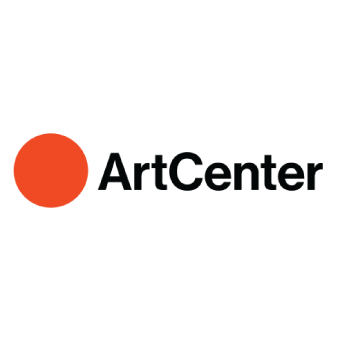Industrial Design schools teach students how to design systems and create products that ultimately optimize the value, function, and appearance of their employers or clients. As a professional service, the job of the Industrial Designer is to utilize the benefits of data collection and analysis to provide clear and concise conclusions that ultimately provide enhanced benefits to consumers. Recommendations are provided through drawings, descriptions and design models.
Best Industrial Design Schools in the U.S. for 2019
Think of the products that you use every day. The majority of them are useful, attractive, and seemingly very simple. However, even the simplest products are much more complicated than they may appear. Not only do these products need to be conceptualized and designed, they must also be manufactured.
Industrial design is a complicated multi-disciplinary area of design. It involves creating products and other objects used by consumers, starting from the idea stage, and going through the manufacturing process. Industrial design covers several areas of design. Some of these areas may include product design, car design, furniture design, shoe design, and packaging design.
Unlike some other areas of design, however, the industrial design focuses more on mass-produced items. It does not only cover the concept stage of a product, but it also focuses on designing the product as well as designing a manufacturing plan for the product.
Top 10 Industrial Design Schools
- Rhode Island School of Design
- Carnegie Mellon University
- ArtCenter College of Design
- California College of the Arts
- Pratt Institute
- Savannah College of Design
- Rochester Institute of Technology
- University of Washington
- Drexel University
- Ohio State University
What Are Industrial Design Schools?
Industrial design schools are educational facilities that enable students to learn all aspects of the industrial design process. This difficult process requires a number of specialized skills.
Professionals in the industrial design field must be more than artistic. They must also have a firm understanding and knowledge of the manufacturing process. These professionals must also be able to design products that are safe and useful, and as inexpensively manufactured as possible.
There are a number of different specialties in industrial design to choose from when attending industrial design schools. Whether your interest lies in designing kitchen gadgets or designing luxury automobiles, industrial design schools can help prepare you for this challenging and rewarding career.
What Are the Different Types of Industrial Design Schools?
An industrial design school is not usually a separate school in and of itself. Typically, industrial design schools are small parts of larger schools or universities. Traditional colleges and universities, for instance, offer industrial design degrees. There are also online programs available.
Art and design schools also offer industrial design schools. These types of schools are often more focused on aesthetics and the artistic aspect of industrial design, but students will also usually learn about the manufacturing process as well. Technical and vocational schools also usually offer industrial design degree programs as well.
What Are the Requirements for Admission to an Industrial Design School?
Most industrial design schools require applicants to have at least basic artistic abilities. This means that they should be creative and able to draw well. Some schools might also require portfolios as well. Knowledge of computers and attention to detail are also important qualities that industrial designers should possess.
What Types of Degree Programs Do Industrial Design Schools Offer?
Most industrial designers start their careers with bachelor of arts degrees in industrial design. The majority of art and design schools, along with some traditional universities, offer degree programs in industrial design. Architecture and engineering degrees might also be acceptable when pursuing industrial design schools.
Because most graduates can only secure entry-level positions with bachelor’s degrees, however, most aspiring industrial designers choose to pursue graduate degrees in this area. Master’s degree programs are offered at a number of different schools, and these give students the ability to concentrate on specific areas of industrial design. Advanced degrees also enable graduates to pursue and secure more job opportunities with higher salaries.
Typical Classes & Coursework
Students enrolled in industrial design schools will usually take several basic art and design courses. They will also usually take courses in design visual arts, graphic design, manufacturing, environmental design, model making, and human interaction.
Computers and their software can be considered to be the backbone of industrial design. Because of this, most industrial design schools require their students to take several computer courses. These can include courses in computer-aided design (CAD), computer-aided industrial design, and 3D model making.
What Can I Do with an Industrial Design Degree?
In the past century, the field of industrial design has grown rapidly, and it continues to grow today. Graduates from industrial design schools will often have no problems finding work, especially considering that consumers find they need more and more products to lead their comfortable lifestyles.
Industrial design school graduates can often find employment in factories and manufacturing plants. Large companies and corporations will also usually hire industrial designers to design and help create a number of different products.
Do I Need a Degree to Work in the Field of Industrial Design?
The answer to this question is a resounding “yes!”. Nearly all industrial design positions – even entry-level industrial design positions – require applicants to have a degree of some sort from an industrial design school. Graduates with bachelor’s degrees will usually have a chance at securing the lower-paying entry-level positions, while those with master’s degrees in the field will be able to secure higher-paying positions with more responsibility. Either way, a degree from an industrial design school is essential for a successful industrial design career.
























